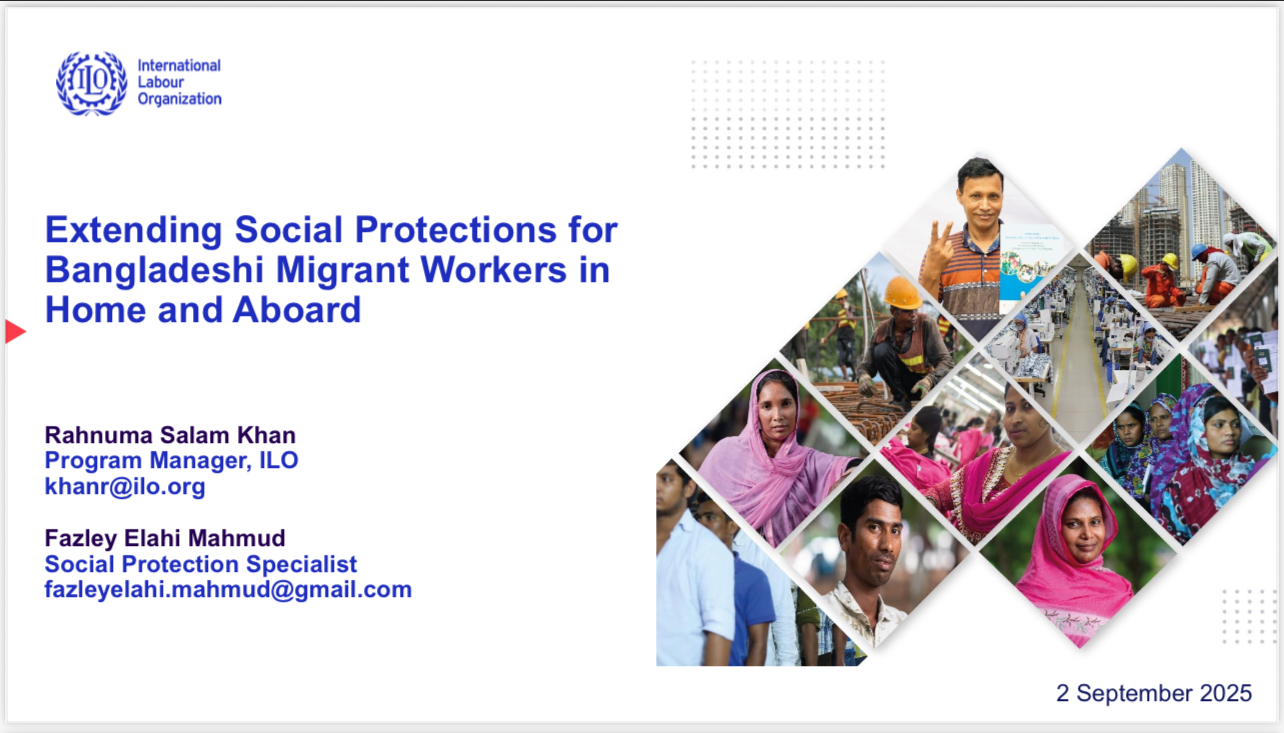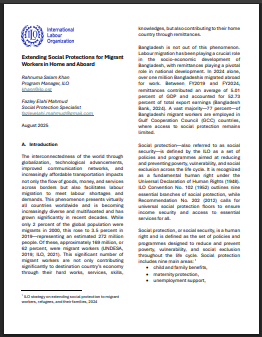Presenter: Ms. Rahnuma Salam Khan, National Programme Manager, ILO-Dhaka
This paper, Review of Migrant Workers’ Access to Existing Social Protection Initiatives and Recommendations for Improvement, examines the extent to which Bangladeshi migrant workers and their families can access social protection and identifies pathways for reform. Labour migration remains a cornerstone of Bangladesh’s economy, with remittances contributing an average of 5 percent of GDP and more than half of total export earnings between FY2019–FY2024. Yet, despite this contribution, migrant workers; predominantly in Gulf Cooperation Council (GCC) countries—face significant barriers to social protection. The review assesses three key initiatives: Probashi Kormi Bima (migrant workers’ insurance), services provided by the Wage Earners’ Welfare Board (WEWB), and the Universal Pension Scheme (UPS), alongside efforts to integrate migrant workers into the National Social Security Strategy (NSSS). Findings reveal low enrolment and restrictive provisions in Probashi Kormi Bima, limited tailored support for vulnerable groups in WEWB services, and marginal uptake of the UPS’s Probash package compared to the subsidized Samata scheme. Broader structural issues; including exclusion of irregular workers and misconceptions about migrant households’ economic stability further restrict access. The study recommends enhancing awareness and claims processes, expanding targeted support for female returnees and children, improving UPS incentives, and embedding migrant-focused initiatives within the NSSS framework. Strengthening co-contribution financing, broadening coverage, and prioritizing migrant households in national selection indicators are essential steps toward ensuring inclusive and sustainable social protection for this vital workforce.





